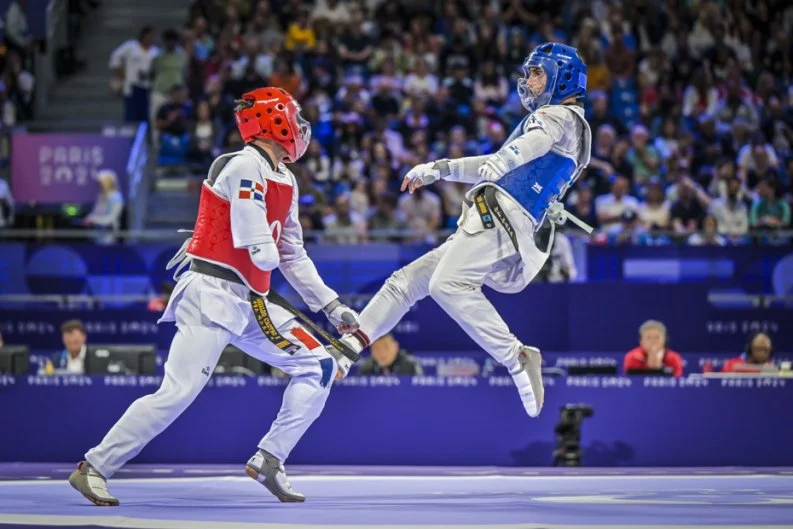
- Adaptive Tae Kwon Do and the Paralympic Movement
- The Rise of Adaptive Sports
- Challenges and Opportunities in Adaptive Tae Kwon Do
- Case Study: Adaptive Tae Kwon Do in Competition
- Jeuns TKD Hub Recommendations
Adaptive Tae Kwon Do and the Paralympic Movement
Adaptive Tae Kwon Do is an exciting, evolving discipline that allows athletes with physical or intellectual disabilities to participate in the martial art of Tae Kwon Do. As part of the broader Paralympic Movement, Adaptive Tae Kwon Do is gaining recognition for its ability to provide an inclusive, empowering experience for individuals with disabilities.
The inclusion of adaptive sports in the Paralympic Movement is an important step forward in creating a more inclusive world of sports. Adaptive Tae Kwon Do offers athletes the chance to compete, excel, and enjoy martial arts in a way that respects their individual needs and abilities. The future of this discipline within the Paralympic community is promising, with efforts being made to standardize rules, improve accessibility, and ensure that these athletes have the support they need to thrive.
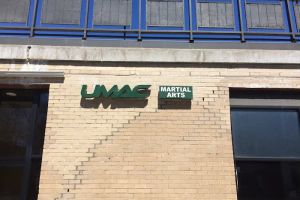
UMAC Ardsley - United Martial Arts Centers / umac ardsley
ArdsleyWestchester CountyNew York
15 Center St #2, Ardsley, NY 10502, USA
The Rise of Adaptive Sports
The world of adaptive sports has seen substantial growth over the past few decades, with more disciplines becoming accessible to athletes with disabilities. The rise of Adaptive Tae Kwon Do is part of this broader trend, as martial arts have traditionally been seen as a highly disciplined yet physical activity. By creating adaptive methods, including modifications in technique and equipment, more individuals can now experience the benefits of Tae Kwon Do, such as increased strength, coordination, and confidence.
Adaptive Tae Kwon Do allows individuals with disabilities to be recognized for their athleticism, skill, and determination. Over the years, the sport has built a strong community, where athletes, coaches, and volunteers work together to break down barriers and promote inclusion. The future of adaptive sports, particularly in martial arts, is bright, with increasing participation and support from organizations and governing bodies worldwide.
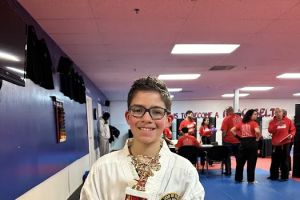
Lead By Example Tae Kwon Do / lead by example tae kwon do
11226 Waples Mill Rd, Fairfax, VA 22030, USA
Challenges and Opportunities in Adaptive Tae Kwon Do
While Adaptive Tae Kwon Do continues to grow, there are several challenges that need to be addressed to fully integrate the sport into the Paralympic Movement:
- Standardization: There is a need for universally accepted rules and regulations that ensure consistency across competitions. As of now, Adaptive Tae Kwon Do is not fully standardized, which can create confusion and limit its growth in global competition.
- Accessibility and Equipment: Making adaptive sports more accessible to athletes, including affordable specialized equipment, is a key challenge. Ensuring that all athletes have the tools they need to compete on an equal playing field is crucial for the future of the sport.
- Awareness and Recognition: Despite its growth, Adaptive Tae Kwon Do still struggles with limited recognition compared to more mainstream adaptive sports. Increased advocacy, media coverage, and collaboration with organizations like the International Paralympic Committee (IPC) will help raise awareness and attract more participants.
However, these challenges present opportunities for innovation. From developing new adaptive equipment to working on better training methodologies, the future of Adaptive Tae Kwon Do has great potential. The support from local communities, governmental bodies, and international sports organizations will be key to overcoming these barriers.
Case Study: Adaptive Tae Kwon Do in Competition
One of the most exciting examples of Adaptive Tae Kwon Do is the participation of athletes in international competitions. As the sport becomes more established, some athletes have begun competing in events that mirror traditional Tae Kwon Do tournaments, but with modifications that make it more inclusive for people with disabilities.
A notable case is the inclusion of adaptive martial arts at events such as the World Taekwondo Championships, where athletes with disabilities are given the opportunity to showcase their skills. These events have highlighted the talents of athletes who have overcome significant challenges, proving that adaptive sports can be just as competitive, exciting, and impactful as their able-bodied counterparts.
In addition to competitions, local adaptive Tae Kwon Do schools are growing in popularity, offering a welcoming environment for people with all types of disabilities. This grassroots movement is helping to create a more inclusive community, and as awareness of the sport increases, more opportunities for athletes to compete on the global stage will arise.
Jeuns TKD Hub Recommendations
If you’re interested in learning more about Adaptive Tae Kwon Do or seeking products and services to help you get started, [Jeuns TKD Hub] is the perfect resource. We offer a wide range of Tae Kwon Do equipment, including adaptive gear designed for athletes with disabilities. Our goal is to provide high-quality products that make practicing and competing in Tae Kwon Do more accessible and enjoyable for everyone.
Whether you are a coach, an athlete, or someone looking to explore Adaptive Tae Kwon Do, Jeuns TKD Hub is here to support your journey. Visit our website for recommendations on gear, training tips, and expert advice on integrating adaptive sports into your routine.
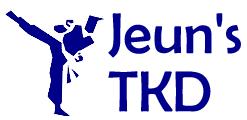
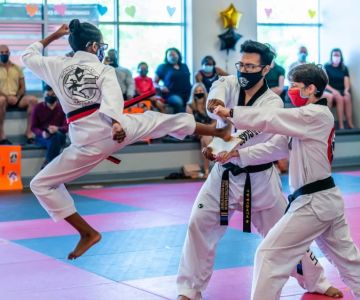
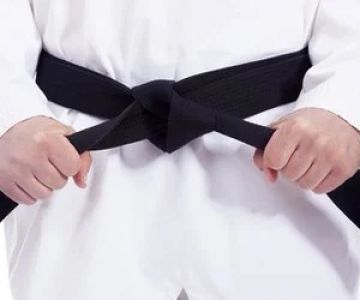
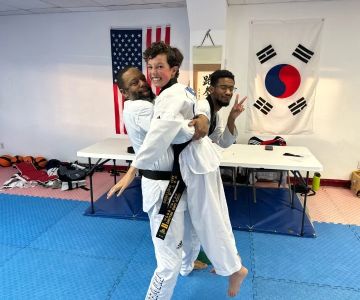
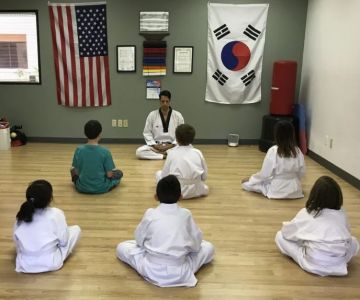
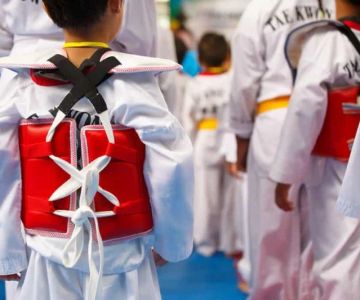
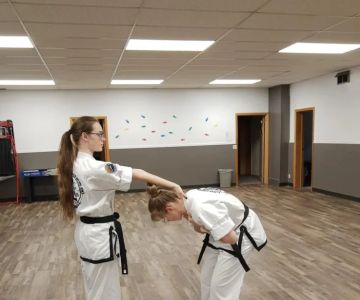
 Fort Walton ATA Martial Arts4.0 (11 reviews)
Fort Walton ATA Martial Arts4.0 (11 reviews)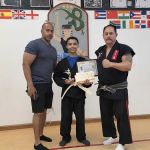 Universal Warrior Mixed Martial Arts4.0 (27 reviews)
Universal Warrior Mixed Martial Arts4.0 (27 reviews) Team Pure Fitness4.0 (27 reviews)
Team Pure Fitness4.0 (27 reviews)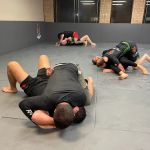 Heart & Dagger BJJ5.0 (112 reviews)
Heart & Dagger BJJ5.0 (112 reviews)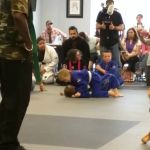 Twin Tigers Martial Arts5.0 (38 reviews)
Twin Tigers Martial Arts5.0 (38 reviews) Champions Martial Arts Upper East Side5.0 (51 reviews)
Champions Martial Arts Upper East Side5.0 (51 reviews)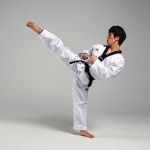 How to Execute a Jumping Roundhouse Kick to the Head
How to Execute a Jumping Roundhouse Kick to the Head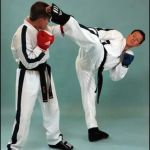 How to Execute a Double Kick Combination in Sparring
How to Execute a Double Kick Combination in Sparring How to Perform a Flawless Axe Kick: A Step-by-Step Guide
How to Perform a Flawless Axe Kick: A Step-by-Step Guide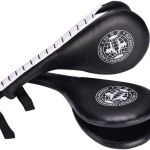 DIY Tae Kwon Do Training Equipment for Home Practice
DIY Tae Kwon Do Training Equipment for Home Practice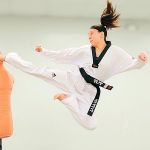 How to Increase Your Vertical Jump for Tae Kwon Do Flying Kicks
How to Increase Your Vertical Jump for Tae Kwon Do Flying Kicks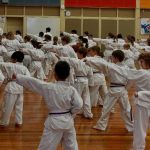 The History of the Tae Kwon Do Peace Corps
The History of the Tae Kwon Do Peace Corps